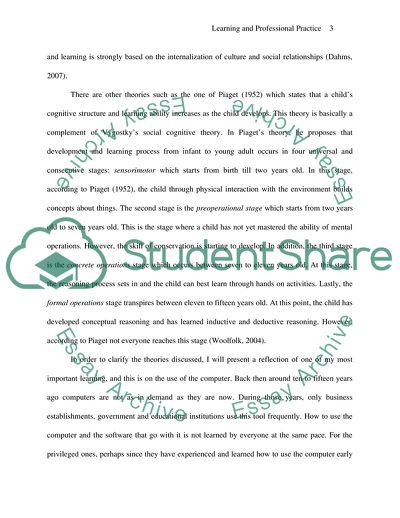Cite this document
(Learning Experiences and the Theories behind It Essay, n.d.)
Learning Experiences and the Theories behind It Essay. https://studentshare.org/education/1717371-learning-professional-practice-reflective-essay
Learning Experiences and the Theories behind It Essay. https://studentshare.org/education/1717371-learning-professional-practice-reflective-essay
(Learning Experiences and the Theories Behind It Essay)
Learning Experiences and the Theories Behind It Essay. https://studentshare.org/education/1717371-learning-professional-practice-reflective-essay.
Learning Experiences and the Theories Behind It Essay. https://studentshare.org/education/1717371-learning-professional-practice-reflective-essay.
“Learning Experiences and the Theories Behind It Essay”. https://studentshare.org/education/1717371-learning-professional-practice-reflective-essay.


